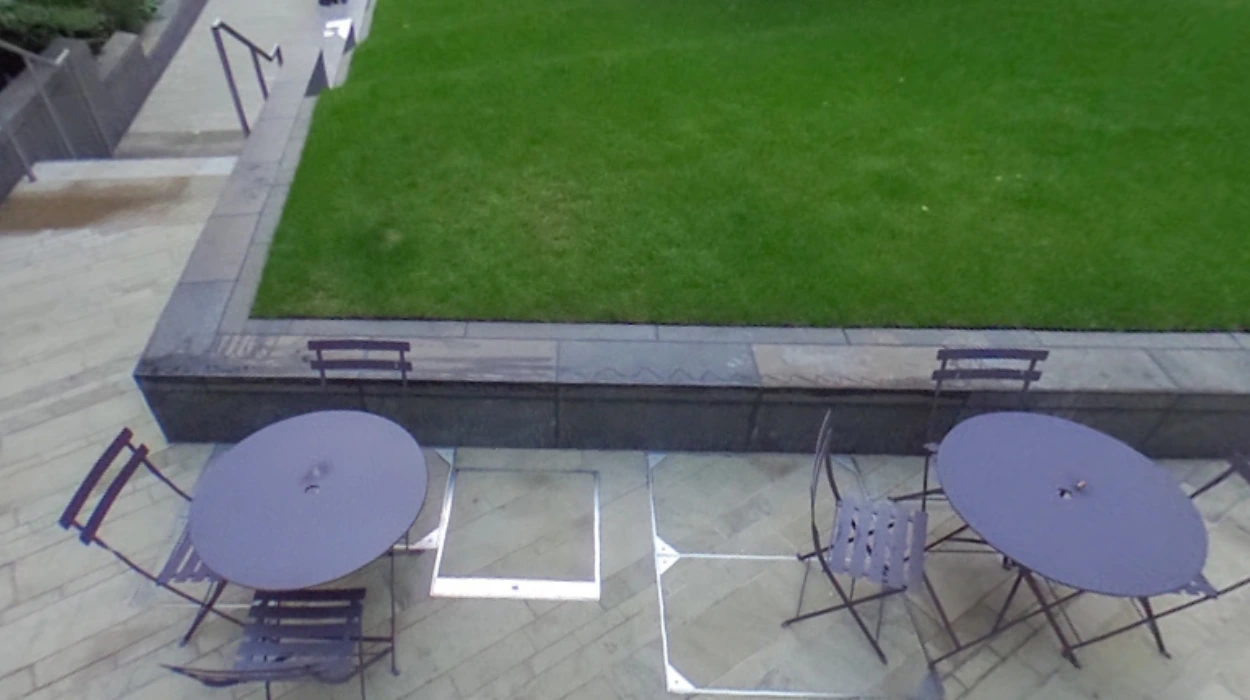Camden (Parliament Politics Magazine) – A new Camden café has opened, repurposing surplus food from local businesses into affordable, nutritious meals to tackle food waste and food insecurity.
As reported by Camden Newsroom, the café, which is operated by Lifeafterhummus, is located on the ground level of Camden Council’s 5 Pancras Square, next to the Pancras Square Library. It is open Tuesday through Saturday from 12 to 5:30 p.m. and serves delectable plant-based meals.
The café is an example of a local organization embracing Camden’s Food Mission, which strives to guarantee that by 2030, everyone eats healthily every day with wholesome, reasonably priced, and sustainably produced food.
It is operated in collaboration with Camden Council. In order to address these significant concerns, Camden’s Missions invite citizens, businesses, community organizations, voluntary groups, and the council to all become involved.
Additionally, the café will give Camden youth who are not enrolled in school, jobs, or training work experience. Young people will be able to apply for apprenticeships offered by Camden Council and its partners as a result.
This supports one of Camden’s missions, which is to guarantee that all young people have access to economic opportunities in order to keep them safe and secure.
The café was properly opened on Saturday, May 10, 2025, with a special opening event.
Councillor Anna Wright, Cabinet Member for Health, Wellbeing and Adult Social Care said:
“This fantastic new community café gives residents nutritious, filling hot meals for just a few pounds, making use of food which might otherwise be wasted or not used.
Lifeafterhummus is also giving work experience placements to Camden young people who are not in work, education or training, where they will get the opportunity to run aspects of the café, the food preparation and serving customers. It’s a great example of how Camden can take on some of the really big challenges we face when we come together and share our skills and resources.”
The café uses food-safe containers marked with contents, storage dates, and allergy information to store food in hygienic, dry, and well-ventilated spaces.
First-In-First-Out (FIFO) and other stock rotation methods make sure that older food is used first and that rotten or expired food is thrown out right away.
The local community already greatly benefits from Lifeafterhummus, a Community Benefit Society.
In addition to running a redistribution network that supports 11 local hostels, an after-school club, and a church group, they also maintain a communal supermarket and re-use center that serves 80 local households.
The extra food gathered by volunteers from Somers Town food businesses and partners is used to produce the café’s meals.
After being prepared and cooked in the Lifeafterhummus kitchen, the food is served at the café.
Farrah Rainfly, Operations Manager and volunteer for Lifeafterhummus, said:
“This initiative is about so much more than just food – it’s about tackling food waste head-on and, most importantly, bringing our community together.
By using surplus food and offering a platform for local residents to try their hands at being community chefs or to get work experience, we’re not only providing affordable, healthy meals but also building confidence, communication skills, and stronger community connections.”
Customers are given clear information about allergens by the café, and employees are trained in emergency protocols and allergen handling. When it is feasible, allergic meals are prepared in separate spaces or with different equipment.
The café is now a reality thanks to funding and help from other partners, such as the North London Waste Authority and ReLondon, a collaboration between the Mayor of London and the boroughs of London.
Lamia Sbiti, Business Transformation Manager for ReLondon, said that too much perfectly edible food gets wasted in London, while many people cannot afford proper meals and stay hungry.
Lifeafterhummus’ mission to bridge this gap is highly important – which is why they supported them with a Growing London’s Circular Food System grant to contribute to their Community Cafe.
They are excited to see this project come to life and can’t wait to witness the positive impact it will have on the community and beyond.
Locals can view the daily menu.
Go to the website to volunteer or apply for work experience.
One of the main goals of Camden’s Food Mission is to reduce food waste. These initiatives to reduce food waste are open to local suppliers and companies. For additional information, send an email to Participation@camden.gov.uk.
How does the Camden cafe ensure the food is safe?
Every employee who handles, prepares, or serves food is well trained in food hygiene. This includes knowing how to prevent infection, avoiding working when sick, and practicing personal hygiene (e.g., washing your hands and bandaging wounds).
To prevent foodborne illnesses, the café adheres to the fundamental guidelines of cleaning, cooking, chilling, and avoiding cross-contamination.
To stop the spread of bacteria and allergies, all places used for food preparation, as well as utensils and equipment, should be cleaned thoroughly and regularly. A “clean as you go” approach is used by several cafés.
To destroy dangerous bacteria, food must be cooked to the proper temperature, which is at least 70°C for two minutes. Food is only reheated once after being heated to at least 75°C for 30 seconds. To confirm cooking temperatures, temperature probes are frequently utilized.


